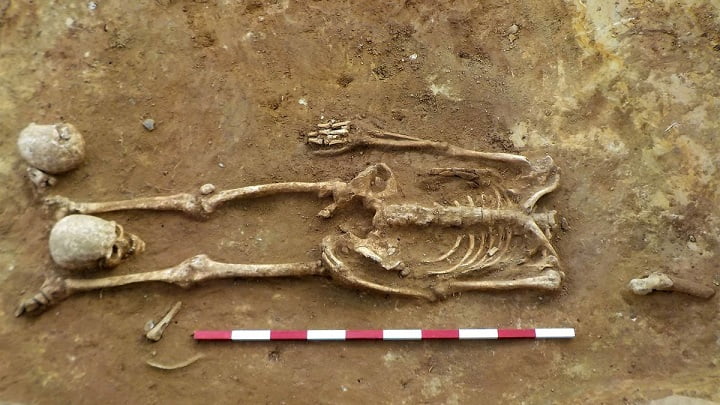By Alia Shoaib | Business Insider
About 40 beheaded skeletons were among 425 bodies found in a late Roman cemetery uncovered by archaeologists in southern England.
The team of around 50 archaeologists made the discovery during an excavation at Fleet Marston, near Aylesbury, Buckinghamshire, on the route of the multi-billion pound high-speed rail link that is currently under construction, HS2 said.
Around 10% of the bodies were decapitated. Many had their heads placed between their legs or next to their feet.
Archaeologists said that one interpretation could be that the decapitated skeletons were criminals or outcasts, although decapitation was a “normal, albeit marginal, burial rite” during the late Roman period.
Over the next few years, the researchers will study the exhumed skeletons, offering an opportunity to learn more about Roman civilization’s historic lifestyles, diet, and beliefs.
“All human remains uncovered will be treated with dignity, care, and respect and our discoveries will be shared with the community,” Helen Wass, head of heritage at HS2 Ltd said.
The team also uncovered over 1,200 coins at the site, along with several lead weights indicating that this was an area of trade and commerce.
A brooch and six-sided die. (HS2)
Domestic objects including spoons, pins, and brooches were found, as well as gaming dice and bells which suggest gambling and religious activity took place there too.
The Romans ruled Britain from 43 CE to 410 CE.
“The excavation is significant in both enabling a clear characterization of this Roman town but also a study of many of its inhabitants,” Richard Brown, Senior Project Manager for COPA said.
Fleet Marston is one of more than 100 archaeological sites that have been unearthed since 2018 as the construction of the HS2 line running from London to Birmingham has been developed.
Archaeologists have been able to uncover rich details about life in Roman Britain, nearly two thousand years ago, through their excavation work.
This article was originally published by Business Insider.

